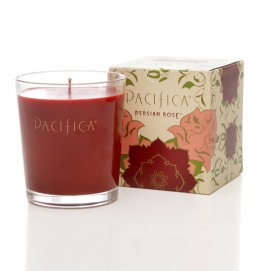 There is always a desire for unique smells, unique essential oils, concepts, and beautiful imagery. A label captures the eye and leads the hand to pick up the product; the words on the label stimulate interest, the nose desires to smell the combination of ingredients, and the smell entices the customer to desire the product. When visiting any health food store one becomes overwhelmed with the variety of amazing sustainable products: they are abundant, and therefore sit in the throne of a competitive market. As the concept for Lavaculture develops, there are a few key products out there that Lavaculture would like to learn from. For this reason, the next step in developing the future of this business requires thorough research, the assimilation of new resources and information, and an understanding of the requirements of the industry itself.
There is always a desire for unique smells, unique essential oils, concepts, and beautiful imagery. A label captures the eye and leads the hand to pick up the product; the words on the label stimulate interest, the nose desires to smell the combination of ingredients, and the smell entices the customer to desire the product. When visiting any health food store one becomes overwhelmed with the variety of amazing sustainable products: they are abundant, and therefore sit in the throne of a competitive market. As the concept for Lavaculture develops, there are a few key products out there that Lavaculture would like to learn from. For this reason, the next step in developing the future of this business requires thorough research, the assimilation of new resources and information, and an understanding of the requirements of the industry itself. This week, Pacifica is the subject of research. Their history, concept and philosophy is one of a kind. Pacifica was founded in 1997 by Brook Harvey Taylor and her husband Billy Taylor. As a child Brook grew up experimenting with essential oils and kitchen spices and eventually began studying aromatherapy. It was when she met Billy Taylor that they conceived their idea of Pacifica. Brook began by creating fragrances that were uniquely her compositions and made her first breakthrough by taking seven of her scents and turning them into candles.
Brook finds inspiration for her fragrances from all over the world. Her philosophy on fragrances is that: "Scents are a magic carpet ride back to great emotions. Many scent responses are learned associations" (Scent and Memory, Pacifica Perfumes Blog). Brook says that the best scent memories can sometimes be random and even unexpected. By choosing to perfume our homes and even ourselves we are creating memories that can be recalled instantly. Brook takes inspiration from all parts of the world including her travels to the most beautiful areas of the Pacific to create her scents. Her products are divided into the following categories: Fruits, Floral, and Nuts and Spices. The scents aren't tacky or overwhelming, rather they enhance the unique subtlety of the natural product.
If you ask her, Brook also markets each fragrance to invoke a particular memory, or mood. Brook associates daringness and adventure with Mediterranean Fig or Hawaiian Ruby Guava;
 |

Sweetness and "girlyness" with French Lilac or Tahitian Gardenia;
Next week, Pacifica's web presence will be explored as well as their packaging design, customer support and sustainability efforts.






No comments:
Post a Comment